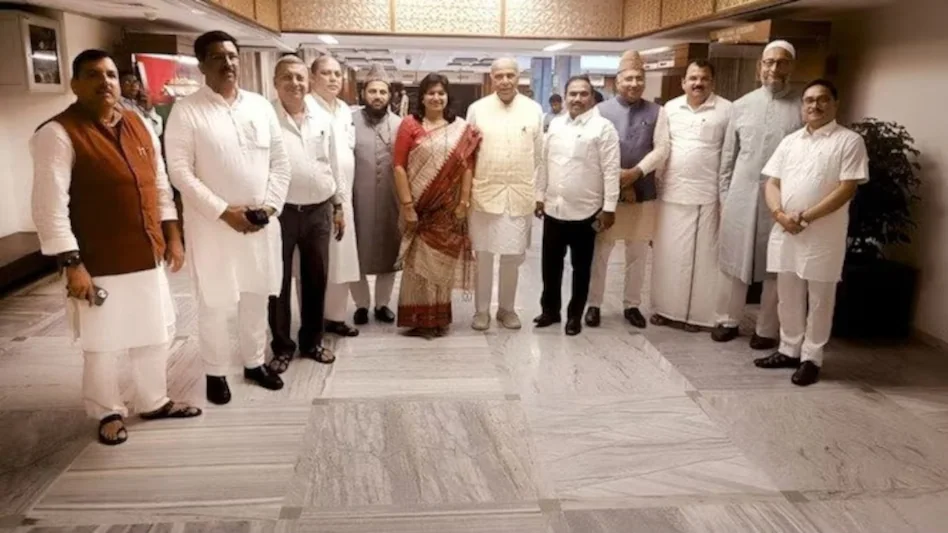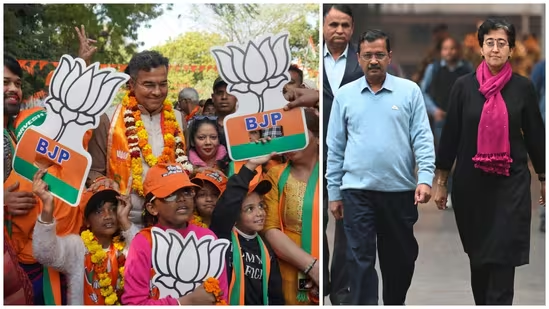
The Joint Parliamentary Committee (JPC) has approved 14 significant amendments to the draft version of the Waqf Amendment Bill, first tabled in the Lok Sabha last August. A standout change introduces a crucial distinction between the mandatory inclusion of at least two non-Muslim members in waqf councils, as stipulated in the original draft, and the flexible addition of nominated ex-officio members, who may be Muslim or non-Muslim.
This pivotal revision ensures a greater spirit of inclusivity in waqf councils at both state and national levels. With this adjustment, councils will not only feature a guaranteed minimum of two non-Muslim members but may also benefit from additional representation through ex-officio appointments.
The amendments highlight a progressive approach toward fostering diversity and representation, marking a significant step in balancing the governance structure of waqf properties across the country.
JPC’s Latest Revisions to Waqf Amendment Bill Spark Controversy and Debate
In a landmark decision, the Joint Parliamentary Committee (JPC) has approved game-changing amendments to the Waqf Amendment Bill, ushering in new governance structures and procedural shifts. One of the most notable revisions is the delegation of responsibility for determining whether a property qualifies as ‘waqf’ to a state-nominated officer, replacing the original provision that tasked the District Collector with this duty.
This shift has stirred controversy, particularly among opposition voices. Congress leader Imran Masood, a JPC member, expressed concern over the retrospective application of the law, pointing out that an estimated 90% of waqf properties remain unregistered. He argued that excluding such properties could create significant challenges for the future of waqf governance.
Additionally, a proposal by BJP MP Tejasvi Surya has sparked debate, requiring individuals donating land to prove they have been practicing Islam for at least five years and to demonstrate authenticity in their property dedication. This new requirement aims to ensure transparency and prevent any potential misuse of the waqf system, but it has also raised questions about its implications for freedom of practice and fairness.
These changes represent a significant step in reshaping the management of waqf properties in India, fostering further discussions on governance, religion, and property rights.
Opposition Parties Slam Proposed Revisions to Waqf Amendment Bill, Cite Threats to Religious Freedom
The proposed changes to the Waqf Amendment Bill have sparked heated opposition, with prominent leaders like Asaduddin Owaisi (AIMIM) and Kalyan Banerjee (Trinamool Congress) fiercely criticizing the bill as a “direct attack on freedom of religion.” Their concerns are echoed by Kanimozhi (DMK), who, alongside Owaisi, argues that the amendments infringe upon constitutional rights, specifically the right to practice religion under Article 15 and the protection of minority communities’ rights to manage their institutions under Article 30.
The Joint Parliamentary Committee (JPC) is set to finalize the acceptance of these 14 contentious changes on January 29, with the final report expected by January 31. While the committee originally had until November 29 to submit its findings, the deadline has now been extended until February 13, the last day of the ongoing Budget Session.
The 1995 Waqf Act, which was last amended in 2013, governs the management of properties donated as waqf. Supporters of the amendments claim that the changes are designed to empower Muslim women, who were reportedly marginalized under the previous provisions. However, opposition leaders argue that these changes could undermine fundamental constitutional protections and disproportionately affect the Muslim community, raising fears about broader implications for religious equality and rights.



